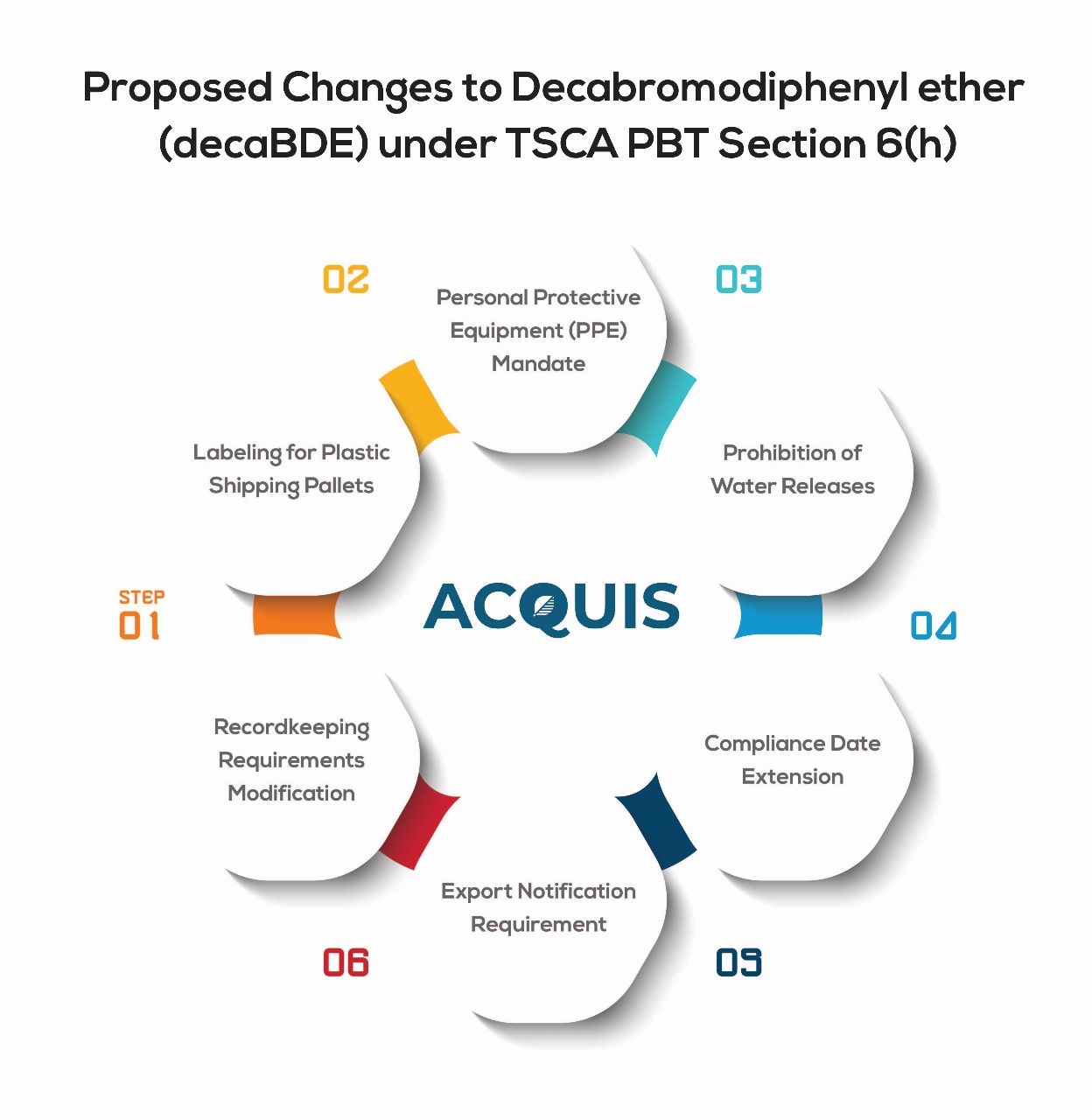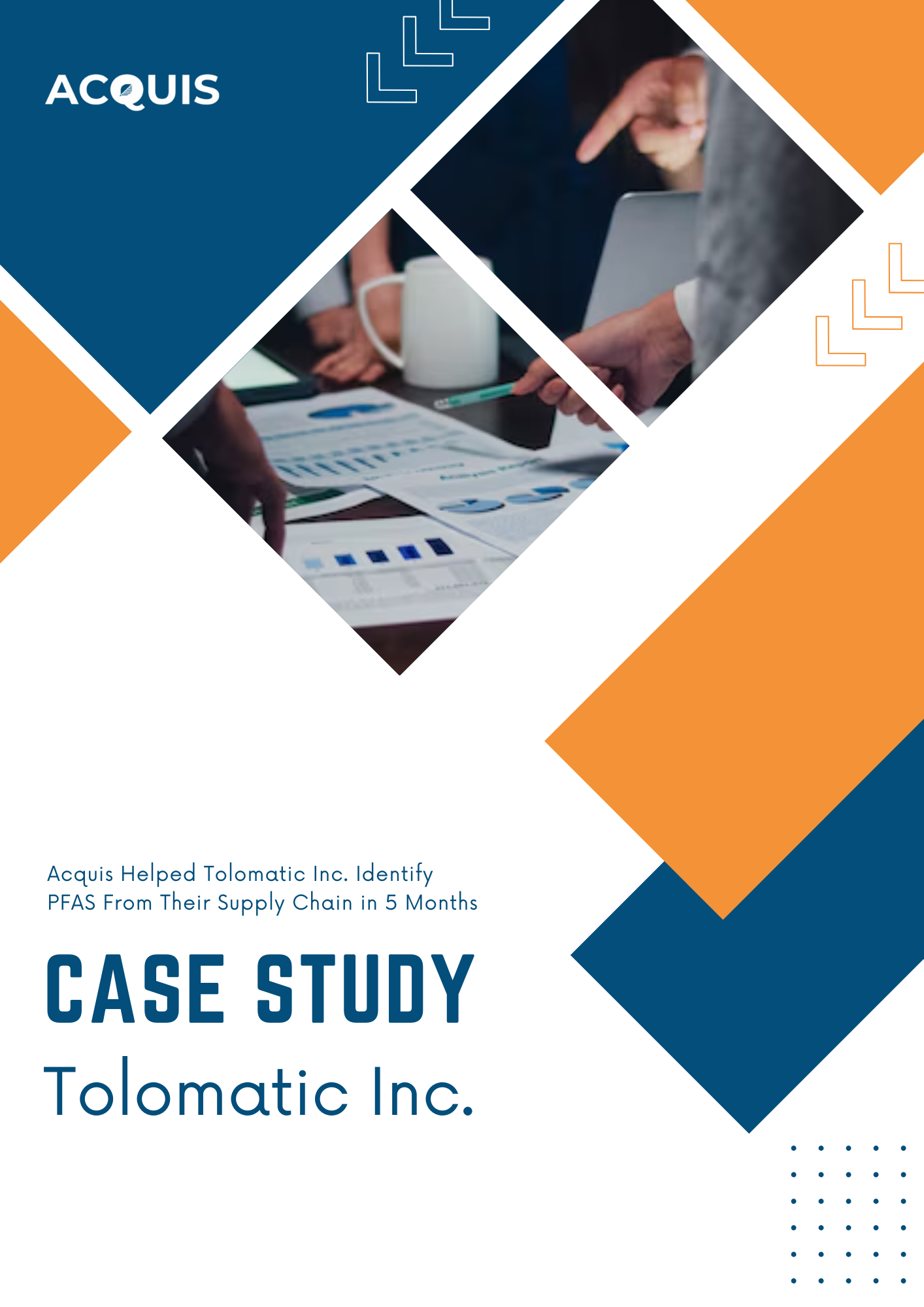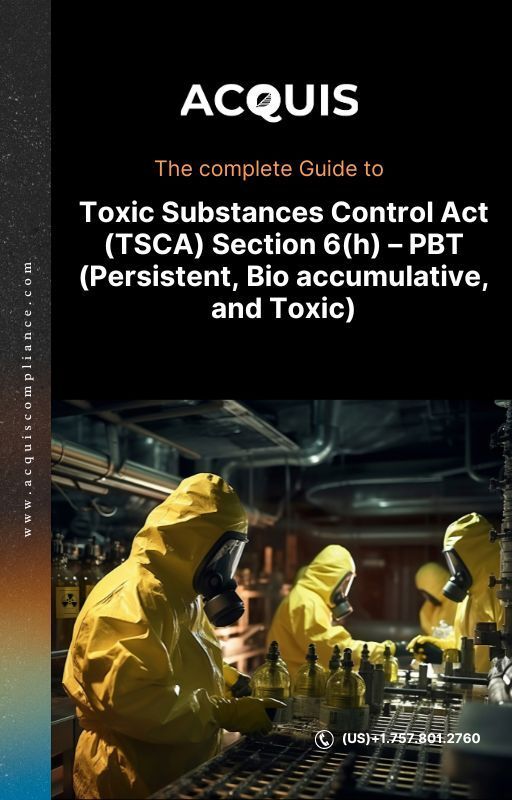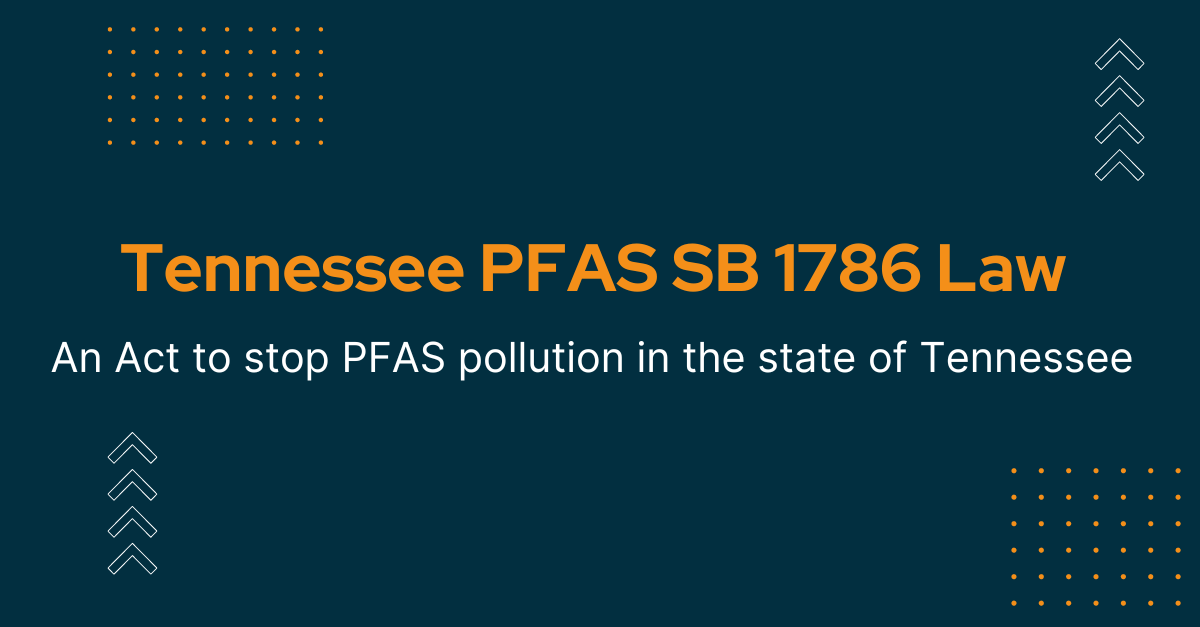In a significant move, the U.S. Environmental Protection Agency (EPA) has proposed modifications to regulations governing Persistent, Bioaccumulative, and Toxic (PBT) chemicals under TSCA section 6(h). Specifically targeting decaBDE and PIP (3:1). Proposed changes are open for comments till Jan 8, 2024.
Reconsideration of Regulations of PBT Chemicals under TSCA Section 6(h)
The proposed changes to the Toxic Substances Control Act (TSCA) regulation follow the EPA's release of final rules on January 6, 2021, designed to reduce exposure to five PBT chemicals. Acknowledging the evolving landscape shaped by Executive Orders and directives from the Biden-Harris Administration, the EPA initiated a review of these rules in 2021. Demonstrating commitment and adaptability, in March 2022, the EPA extended the enforcement deadline for PIP (3:1) compliance to October 2024. It's crucial to note that the proposed modifications exclusively pertain to PIP (3:1) and DecaBDE prohibitions, leaving the restrictions on the other three PBT substances (2,4,6-Tris(tert-butyl)phenol, Hexachlorobutadiene, and Pentachlorothiophenol) under 40 CFR Part 751 Subpart E unaffected. All existing prohibitions on these substances will remain unchanged and in force.
Revision of PIP 3:1 Rule under TSCA: Restrictions & Exemptions for the electronics and electrical manufacturers
- Permanent Exclusion for Circuit Boards and Wire Harnesses: PIP (3:1) will be permanently excluded from restrictions when used in products manufactured for circuit boards and wire harnesses. This exclusion applies exclusively to PCB assemblies.
- Uncertainty in the Definition of "Used in Circuit Boards": The definition of what constitutes "used in circuit boards" remains undefined, prompting stakeholders to seek clarification during the comment period.
- Narrowing of Lubricants and Greases Exclusion: The exclusion of PIP (3:1) in lubricants and greases has been narrowed, applicable only for aerospace and turbine uses.
- Phased Prohibition for Other Lubricant Applications: For applications outside aerospace and turbines, a five-year phased-in prohibition will be imposed on the use of PIP (3:1) in lubricants and grease. Manufacturers of precision motors and hard drives are advised to assess their supply chains for PIP (3:1) presence.
- Changes in Motor Vehicle Parts Exclusion: The exclusion of PIP (3:1) in motor vehicle parts has been replaced with non-permanent exemptions, expiring in 15 years for new vehicles and parts and 30 years for replacement parts.
- Aerospace Manufacturing Exemption: The exclusion of PIP (3:1) in aerospace manufacturing has been replaced with a 30-year exemption. Manufacturers in the aerospace industry may anticipate concerns sooner due to the extended lifespans of aerospace products.
- Exemptions for Manufacturing Equipment and Semiconductor Industry: A 10-year exemption has been granted for the use of PIP (3:1) in manufacturing equipment and semiconductor industry equipment
Proposed Changes to Decabromodiphenyl ether (decaBDE) under TSCA PBT Section 6(h)

- Labeling for Plastic Shipping Pallets: The proposed rule mandates labeling on existing plastic shipping pallets known to contain decaBDE.
- Personal Protective Equipment (PPE) Mandate: Activities involving decaBDE would necessitate the use of specific PPE, including a NIOSH-approved N95 respirator with an APF of 10 and chemically resistant gloves.
- Prohibition of Water Releases: The rule aims to prohibit the release of water during the manufacturing, processing, and distribution of decaBDE and decaBDE-containing products.
- Compliance Date Extension: Compliance dates for processing and distributing decaBDE-containing wire and cable insulation for nuclear power generation facilities will be extended.
- Export Notification Requirement: Export notification becomes mandatory for decaBDE-containing wire and cable for use in nuclear power generation facilities.
- Recordkeeping Requirements Modification: Existing recordkeeping requirements will be modified, and new records associated with workplace protection requirements will be required.
Proposed Changes to phenol, isopropylated phosphate (3:1) (PIP (3:1)) under TSCA PBT Section 6(h)
- PPE Requirement for Manufacturing and Processing: The domestic manufacturing and processing of PIP (3:1) and some PIP (3:1)-containing products would require the use of PPE, including at least a NIOSH-approved respirator with an APF of 10 and chemically resistant gloves.
- Engineering Controls for Specific Applications: PIP (3:1) used as an intermediate in the manufacturing of cyanoacrylate adhesives would require engineering controls and PPE.
- Scope Narrowing for Lubricants and Greases: The exclusion for the use of PIP (3:1) in lubricants and greases would narrow, with a 5-year phased-in prohibition for all uses except aviation and turbine applications.
- New Exclusions and Replacements: New exclusions have been added for use in wire harnesses and electric circuit boards, replacing previous exclusions.
- Extended Compliance Timeframes: Compliance timeframes have been extended for various applications, including an additional 10 years for use in manufacturing equipment and in the semiconductor industry.
- New Deadline for Specific Application: A new 5-year compliance deadline is proposed for the processing and distribution of PIP (3:1) for use as an inert ingredient in a Federal Insecticide, Fungicide, and Rodenticide Act-approved antifouling paint coating for U.S. Navy applications.
Conclusion:
The U.S. Environmental Protection Agency implemented final rules on January 6, 2021, under the Toxic Substances Control Act (TSCA) to minimize exposure to five persistent, bioaccumulative, and toxic (PBT) chemicals. In response to Executive Orders and guidance from the Biden-Harris Administration, the EPA reviewed these rules in 2021, initiating a public comment period for additional insights. To ensure supply chain stability and safeguard the U.S. nuclear power sector, the EPA extended compliance dates to October 31, 2024, for prohibitions on PIP (3:1) in specific articles. The EPA's proposed revisions further refine the PIP 3:1 & decaBDE rule, emphasizing its commitment to environmental compliance and industry alignment.
Speak to Our Compliance Experts
Share
ENVIRONMENTAL COMPLIANCE
- RoHS
- SCIP (WFD)
- REACH
- California Proposition 65
- Material Disclosure (FMD)
- PFAS
- TSCA PBT
- EU POPs
- EU MDR & IVDR
- ELV (GADSL)
- Others
- Extended Producer Responsibility (EPR)
INTEGRATION SUPPORT
WE ARE GLOBAL
USA
6705 Ridgedale CT, Glen Allen, VA 23059
+1.757.801.2760
info@aquiscompliance.com
India
#9/2, Hennur Bagalur Main Road, Bengaluru - 560077
+91 789 238 1827
info@aquiscompliance.com



